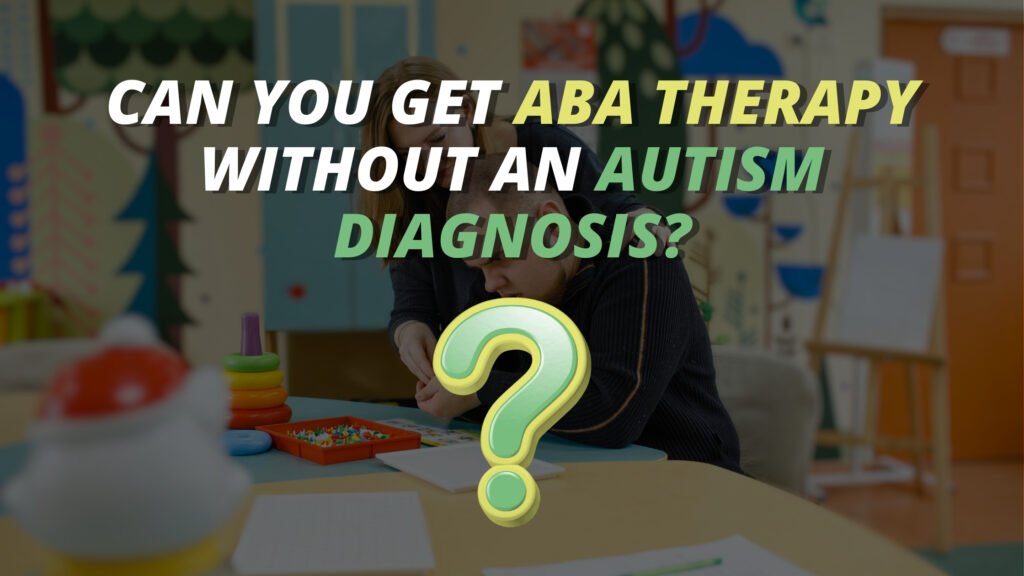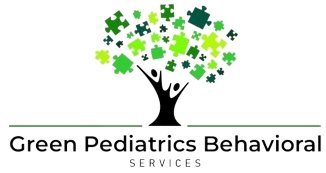In recent years, Applied Behavior Analysis (ABA) therapy has gained recognition as one of the most effective treatments for individuals on the autism spectrum. Its structured approach focuses on improving specific behaviors, communication skills, and social interactions.
How does ABA therapy work?
ABA therapy gives patients vital life skills that support long-term success in addition to treating behavioral issues that arise right away.

This comprehensive approach not only helps people overcome pressing obstacles but also gives them the tools to deal with daily life more skillfully, which enhances functioning and well-being in general. Consequently, families and caregivers frequently see notable improvements in the quality of life for their loved ones, which improves their capacity to engage meaningfully in a variety of settings and activities.
ABA serves as a good counter to Autism
Families and caregivers frequently experiment with different therapy approaches in an effort to maximize developmental outcomes and promote meaningful progress. As an important intervention, ABA therapy is praised for its customized strategy and quantifiable results in treating behavioral issues.
Challenges with ABA therapy
The increasing amount of knowledge on neurodiversity also includes the possibility that ABA therapy may be beneficial for conditions other than autism spectrum disorder (ASD). For people seeking ABA therapies without an autism diagnosis, however, navigating the healthcare and insurance coverage landscape can be difficult. This leads us to investigate the wider applications of ABA therapy as well as any obstacles that people might have in using this effective therapeutic approach.
Can you get ABA therapy without an Autism diagnosis?
In this blog, we will tackle a question that’s been on the minds of many: Can you access Applied Behavior Analysis (ABA) therapy without an autism diagnosis? The short answer: yes, you can!

Let’s look into the details and considerations surrounding this topic.
- Identifying Needs Beyond Autism: While ABA therapy is most commonly associated with autism treatment, its principles and techniques can be beneficial for individuals with a wide range of developmental, behavioral, and learning challenges. Whether it’s addressing ADHD, intellectual disabilities, or behavioral disorders, ABA therapy can be customized to target specific goals and support individual growth and development.
- For instance, individuals with ADHD may benefit from ABA techniques to improve focus, impulse control, and organizational skills. Likewise, individuals with intellectual disabilities may benefit from ABA interventions to enhance adaptive behaviors, communication skills, and independence in daily living tasks. By recognizing the broader applicability of ABA therapy, individuals and families can explore its potential benefits beyond an autism diagnosis.
- Seeking Professional Assessment and Guidance: If you suspect that you or a loved one could benefit from ABA therapy but have not received an autism diagnosis, it’s essential to seek out a comprehensive assessment from qualified professionals. A licensed psychologist, developmental pediatrician, or behavior analyst can conduct evaluations to identify strengths, challenges, and areas of need.
- During the assessment process, professionals may gather information through standardized tests, behavioral observations, interviews, and developmental history reviews. These assessments help to paint a comprehensive picture of the individual’s strengths, challenges, and support needs, guiding recommendations for appropriate interventions, including ABA therapy if deemed beneficial.
- Exploring Funding and Insurance Coverage: Accessing ABA therapy without an autism diagnosis may present challenges when it comes to funding and insurance coverage. Many insurance providers require a formal autism diagnosis for coverage of ABA therapy services. However, some states and regions offer alternative funding options or waivers that may extend coverage to individuals with other developmental or behavioral diagnoses.
- Additionally, community organizations, schools, or nonprofit agencies may offer sliding-scale fees or financial assistance programs to support access to ABA therapy for those in need. It’s essential to research available resources, explore eligibility criteria, and advocate for equitable access to ABA therapy services for individuals with diverse needs beyond autism.
- Advocating for Individualized Support: Regardless of diagnosis, every individual deserves access to appropriate support and resources that meet their unique needs and preferences. If you encounter barriers to accessing ABA therapy without an autism diagnosis, don’t hesitate to advocate for yourself or your loved one.
- Embracing Approach to Support: ABA therapy is just one piece of the puzzle when it comes to supporting individuals with developmental or behavioral challenges. It’s essential to adopt a holistic approach that encompasses a range of interventions, supports, and services tailored to the individual’s strengths, interests, and goals.
- Consider additional therapies: including speech therapy, occupational therapy, social skills groups, and educational modifications in addition to ABA therapy. You can meet the various requirements of people with a range of behavioral or developmental issues by adopting a holistic approach to assistance, which will enhance the person’s progress and well-being.
Conclusion
In conclusion, although ABA therapy is frequently linked to the treatment of autism, people with a variety of developmental and behavioral issues can also benefit from it. In order to receive ABA therapy without an autism diagnosis, it might be necessary to conduct a comprehensive examination, fight for financing and insurance coverage, and look into other options.
People who accept a more comprehensive approach to assistance and acknowledge the wider application of ABA therapy can obtain individualized interventions that enhance their development, independence, and general well-being. Promoting equitable access to evidence-based interventions guarantees that people with a range of needs get the help they require to succeed.
